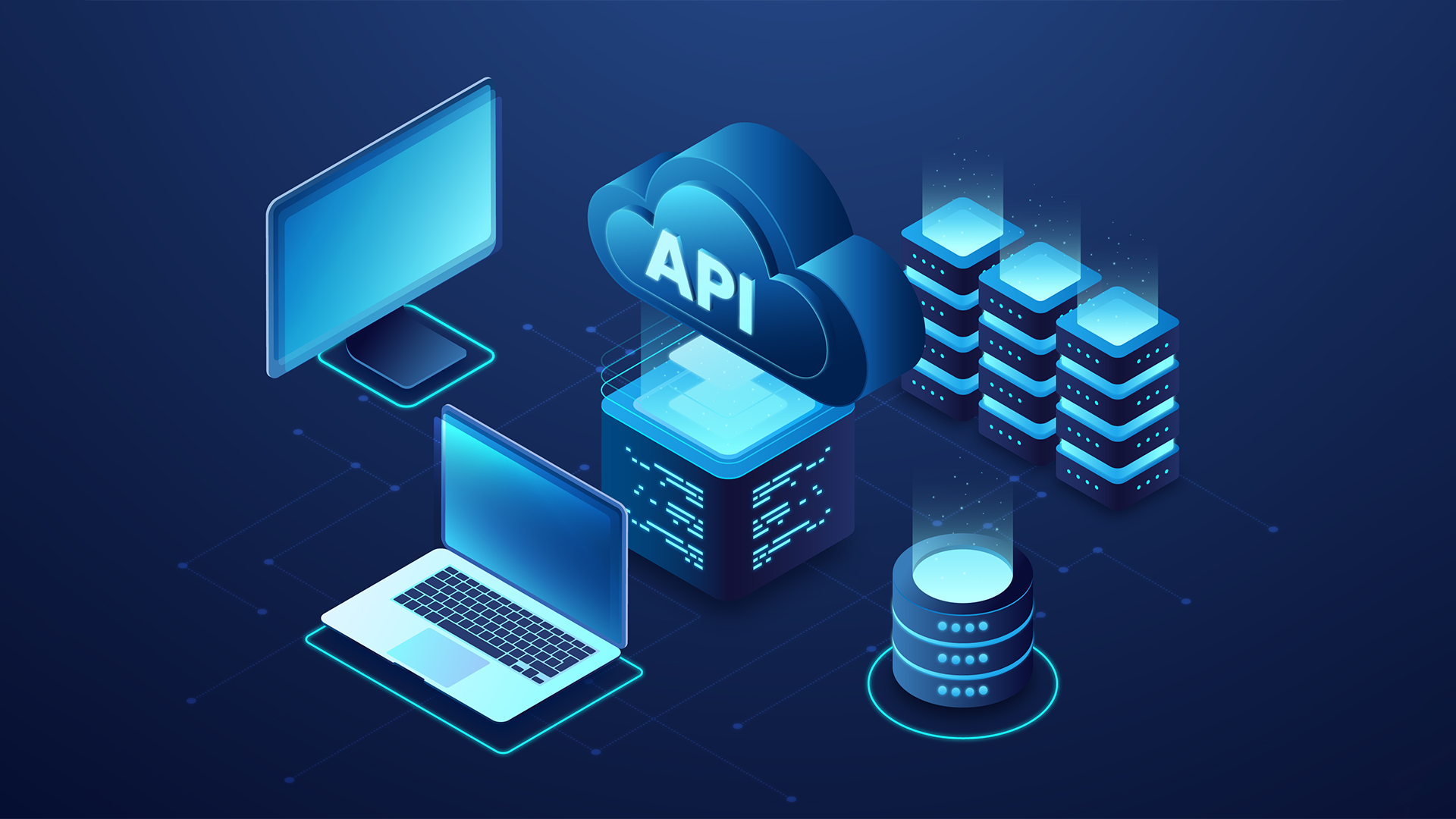
Thank you
Our team of industry domain experts combined with our guaranteed SLAs, our world class technology .


Get Immediate Help
In an increasingly digital world, safeguarding sensitive data is critical, especially in regions like Saudi Arabia, where digital transformation is rapidly shaping businesses and industries. With the growing reliance on APIs (Application Programming Interfaces) to streamline operations and connect systems, data protection in Saudi Arabia has become a top priority for organisations.
APIs are the lifelines of modern applications, enabling communication between software systems. But without robust web security measures, they can also be a gateway for cyberattacks. This blog will explore the importance of protecting APIs, discuss key API security measures, and outline best practices for data breach prevention.

Saudi Arabia is making remarkable strides in technology, with initiatives like Vision 2030 driving widespread digital adoption. However, this rapid digitisation has also made the country a lucrative target for cybercriminals.
Compliance: Saudi Arabia’s Personal Data Protection Law (PDPL) enforces stringent regulations to protect sensitive information, ensuring that organisations adopt best practices for data breach prevention.
Reputation: A data breach can severely damage a company’s reputation, especially in industries like banking, healthcare, and e-commerce, where trust is paramount.
Business Continuity: Cyberattacks can disrupt operations, leading to financial losses and customer dissatisfaction.

APIs enable seamless data sharing between applications, powering everything from online banking to e-commerce. But their ubiquity also makes them attractive targets for hackers. Without proper API endpoint protection, APIs can expose sensitive data, including customer information and business-critical assets.
Weak Authentication: Poorly implemented authentication mechanisms can allow unauthorised access.
Excessive Data Exposure: APIs that return more data than necessary increase the risk of sensitive information being exposed.
Injection Attacks: Cybercriminals can exploit vulnerabilities to inject malicious code into APIs.
Rate Limiting Issues: APIs without proper rate limiting can be abused through DDoS attacks.

1. Secure API Authentication Methods
Use modern authentication protocols like OAuth 2.0 and OpenID Connect.
Implement multi-factor authentication (MFA) for added security.
2. Encrypt Data in Transit
Use HTTPS and TLS to ensure secure communication between clients and servers.
3. Implement API Gateway Security
API gateways act as intermediaries, managing and securing API traffic. They provide features like authentication, rate limiting, and threat detection.
4. Conduct Regular API Security Testing
Perform penetration testing and vulnerability scans to identify and address weaknesses.
5. Use API Endpoint Protection
Secure API endpoints with firewalls and access controls to prevent unauthorised access.
6. Monitor API Traffic in Real-Time
Use advanced monitoring tools to detect unusual activity and respond to threats proactively.
7. Minimise Data Exposure
Follow the principle of least privilege to ensure APIs only return the data necessary for specific operations.

While protecting APIs is essential, organisations must also address overall web security to safeguard their digital assets.
Implement Web Application Firewalls (WAFs): Protect websites from common threats like SQL injection and cross-site scripting (XSS).
Regularly Update and Patch Software: Ensure all systems, including APIs, are updated to fix known vulnerabilities.
Train Employees on Cybersecurity Best Practices: Educate staff about phishing, strong passwords, and other security measures.
Backup Data Regularly: Maintain secure backups to ensure business continuity in case of a breach.
Saudi Arabia is taking significant steps to bolster cybersecurity, with a focus on:
Cyber Resilience in Saudi Arabia: Organisations are adopting proactive strategies to detect, respond to, and recover from cyber incidents.
Digital Infrastructure Security: Investments in robust infrastructure are helping secure the nation’s growing digital economy.
API Security Services in Riyadh: With Riyadh emerging as a technology hub, businesses are prioritising API security measures to protect their operations.
In 2022, a healthcare organisation in the Middle East faced a significant data breach due to insecure APIs. Sensitive patient information was exposed, resulting in:
Financial losses due to penalties and legal fees.
Reputational damage, leading to a decline in patient trust.
Operational disruptions during the investigation and recovery process.
Such incidents highlight the need for robust API security services and comprehensive web application security basics.
Regular Security Audits: Identify vulnerabilities in your website and APIs.
Adopt Multi-Layered Security: Use a combination of WAFs, API gateways, and endpoint protection.
Leverage Advanced Threat Detection: Monitor for hidden online threats to ensure real-time protection.
Comply with Local Regulations: Align your security practices with Saudi Arabia’s data protection laws.
For organisations tackling web security and API protection in Saudi Arabia, the following Microminder Cybersecurity (CS) services are invaluable in addressing security challenges and ensuring data protection:
1. Web Application Security Assessment
How It Helps: Evaluates the security posture of web applications, identifying vulnerabilities such as SQL injection, XSS, and insecure APIs.
Benefit: Protects web applications and APIs from exploitation, safeguarding sensitive customer and business data.
2. API Security Assessment and Protection
How It Helps: Focuses specifically on securing APIs by testing authentication protocols, data exposure risks, and endpoint vulnerabilities.
Benefit: Ensures secure communication between systems and protects API endpoints from unauthorised access.
3. Web Application Firewall (WAF) Management
How It Helps: Filters and blocks malicious traffic targeting web applications and APIs, preventing common attacks like injection and DDoS.
Benefit: Provides a strong defensive layer to protect websites and APIs from evolving web threats.
4. Managed Detection and Response (MDR)
How It Helps: Offers 24/7 monitoring and real-time detection of threats targeting APIs, web applications, and other digital assets.
Benefit: Ensures rapid incident response and minimises the impact of potential breaches.
5. Vulnerability Management Services
How It Helps: Regularly scans for and addresses vulnerabilities in APIs, websites, and supporting infrastructure.
Benefit: Keeps systems secure and up-to-date, reducing the risk of data breaches.
6. Threat Intelligence and Hunting Services
How It Helps: Identifies emerging threats targeting APIs and web platforms, proactively searching for weaknesses.
Benefit: Strengthens defences by addressing risks before they can be exploited.
7. Security Architecture Review Services
How It Helps: Examines the overall design of web and API security frameworks to ensure they align with industry best practices.
Benefit: Enhances the robustness of security infrastructure, preventing gaps that attackers could exploit.
8. Incident Response Retainers
How It Helps: Provides immediate access to cybersecurity experts for rapid containment and resolution of web or API-related security incidents.
Benefit: Minimises downtime and operational disruptions during breaches, ensuring business continuity.
9. Cloud Security Solutions
How It Helps: Secures APIs and web applications hosted on cloud platforms, addressing misconfigurations and ensuring data encryption.
Benefit: Offers comprehensive protection for cloud-hosted systems, critical for businesses in Saudi Arabia’s digital economy.
10. Compliance Gap Analysis
How It Helps: Evaluates adherence to Saudi Arabia’s data protection laws and international standards like GDPR, ensuring secure data handling.
Benefit: Avoids legal penalties and builds customer trust through compliance with regulations.
By leveraging these Microminder CS services, organisations in Saudi Arabia can effectively secure their web applications, protect sensitive APIs, and maintain compliance with data protection regulations, ensuring a safe and trustworthy digital presence.
In Saudi Arabia’s rapidly evolving digital landscape, protecting APIs and sensitive data is no longer optional—it’s a business imperative. By implementing robust web security measures and following best practices, organisations can safeguard their operations, maintain compliance, and protect their customers’ trust.
Don’t wait for a data breach to expose your vulnerabilities. Invest in comprehensive web and API security today to build a secure, resilient digital presence.
Don’t Let Cyber Attacks Ruin Your Business
Call
UK: +44 (0)20 3336 7200
KSA: +966 1351 81844
UAE: +971 454 01252
Contents
To keep up with innovation in IT & OT security, subscribe to our newsletter
Recent Posts
Penetration Testing | 10/11/2025
Cloud Security | 07/11/2025
Cybersecurity | 06/11/2025
What is API security, and why is it important?
API security involves protecting APIs from unauthorised access, data breaches, and cyberattacks. APIs handle sensitive data and enable communication between systems, making their security crucial for protecting user information and maintaining business integrity.What are common API security risks?
Weak Authentication: Poorly implemented or absent authentication mechanisms. Excessive Data Exposure: APIs providing more data than necessary. Injection Attacks: Exploiting vulnerabilities to inject malicious code. Lack of Encryption: Transmitting sensitive data without encryption.How does API security differ from web security?
While web security focuses on protecting websites from cyber threats, API security specifically addresses the unique risks associated with APIs, such as endpoint protection and secure data exchanges.What are the best practices for securing APIs?
Use strong authentication and authorisation methods. Encrypt data in transit and at rest. Limit data exposure to only what is necessary. Implement rate limiting to prevent abuse.Why is data protection critical in Saudi Arabia?
Saudi Arabia’s Personal Data Protection Law (PDPL) enforces stringent regulations to safeguard sensitive data, ensuring businesses protect customer information and avoid legal penalties.